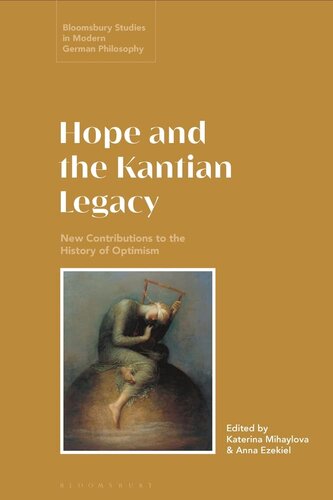

Most ebook files are in PDF format, so you can easily read them using various software such as Foxit Reader or directly on the Google Chrome browser.
Some ebook files are released by publishers in other formats such as .awz, .mobi, .epub, .fb2, etc. You may need to install specific software to read these formats on mobile/PC, such as Calibre.
Please read the tutorial at this link: https://ebookbell.com/faq
We offer FREE conversion to the popular formats you request; however, this may take some time. Therefore, right after payment, please email us, and we will try to provide the service as quickly as possible.
For some exceptional file formats or broken links (if any), please refrain from opening any disputes. Instead, email us first, and we will try to assist within a maximum of 6 hours.
EbookBell Team

4.3
38 reviewsHope is understood to be a significant part of human experience, including for motivating behaviour, promoting happiness, and justifying a conception of the self as having agency. Yet substantial gaps remain regarding the development of the concept of hope in the history of philosophy. This collection addresses this gap by reconstructing and analysing a variety of approaches to hope in late 18th- and 19th-century German philosophy.
In 1781, Kant's idea of a “rational hope” shifted the terms of discussion about hope and its role for human self-understanding. In the 19th century, a wide-ranging debate over the meaning and function of hope emerged in response to his work. Drawing on expertise from a diverse group of contributors, this collection explores perspectives on hope from Kant, Fichte, Schelling, Schopenhauer, J. S. Beck, J. C. Hoffbauer, Wilhelm von Humboldt, Georg Friedrich Creuzer, Kierkegaard and others. Chapters consider different aspects of the concept of hope, including the rationality of hope, appropriate and inappropriate applications of hope and the function of hope in relation to religion and society.
The result is a valuable collection covering a century of the role of hope in shaping cognitive attitudes and constructing social, political and moral communities. As an overview of philosophical approaches to hope during this period, including by philosophers who are seldom studied today, the collection constitutes a valuable resource for exploring the development of this important concept in post-Kantian German philosophy.